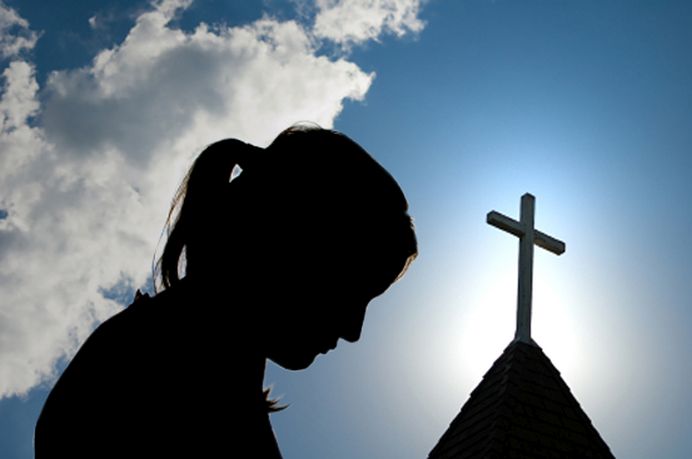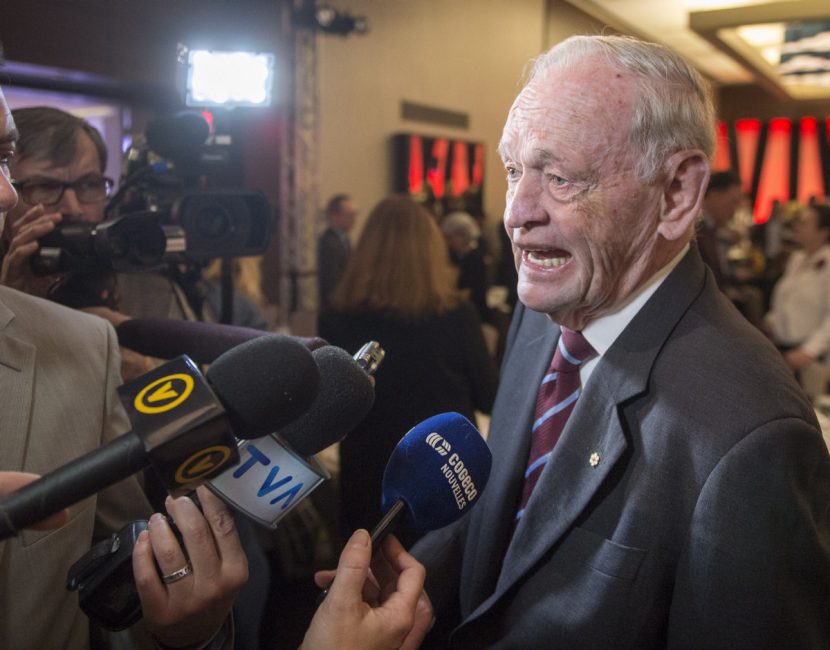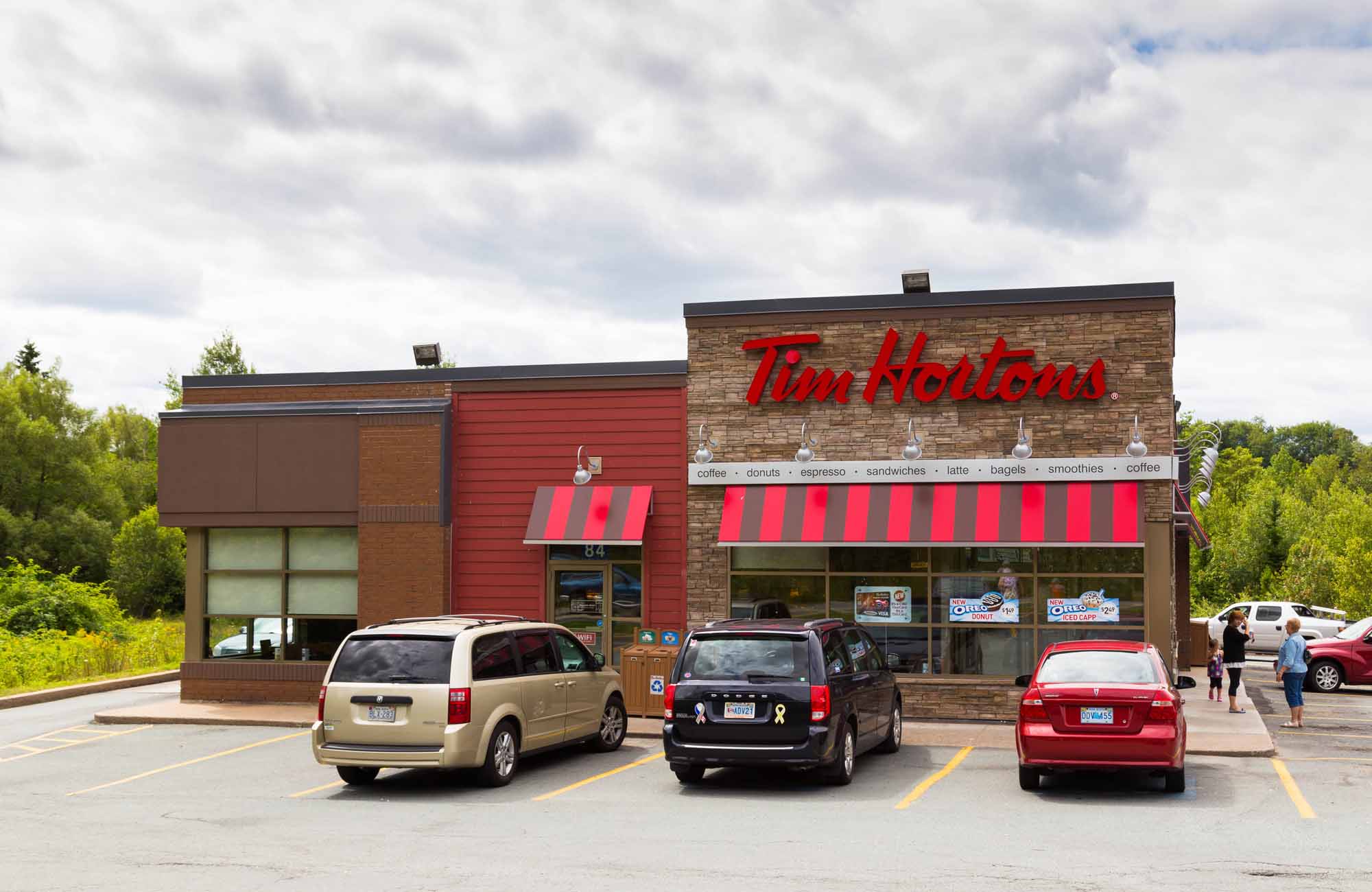Canadian conservatives are perpetually perplexed at the perceived double-standard exhibited by their liberal progressive counterparts when it comes to religion.
And if you're a conservative you know exactly what I'm referring to.
On the one hand, liberal progressives seem to celebrate and accept Islam, while on the other, they seem to hold Christianity — more specifically Roman Catholicism in something approaching thinly veiled contempt.
Some conservatives blame this double standard on political correctness, while others contend it's just a case of old-fashioned political pandering.
And yes, those two things might play a part in it, but in my view, the liberal progressive attitude towards religion is based on something far deeper, something far more primal.
OK, at this point, I should point out that to understand where I'm going with this argument, you'll probably need to get a hold of history book.
I'll wait.
Alright, if you check your history book, you'll find that liberal progressives have basically been waging an ideological blood feud against Roman Catholicism for about three hundred years.
To put that another way, ever since the "Enlightenment", people who consider themselves "liberal" or "progressive" have seen the Roman Catholic Church as humanity's greatest mortal enemy.
And it's easy to see why this is the case.
Liberal progressives have traditionally seen themselves as standing for progress, for science, for democracy, for equality, while they have traditionally seen the Roman Catholic Church as standing for stagnation, superstition, tyranny, and intolerance.
Simply put, the Catholic Church, with its inquisitions and heretic burnings, its decadent popes and medieval mysticism; its hierarchical structure and anarchistic moral values, has basically always been perceived by liberal progressives as an institution that's irredeemably entrenched in a "Dark Ages" mentality.
Thus, for hundreds of years liberal progressives saw the Church as a roadblock to human progress, and by extension as a dangerous and reactionary force that must be vigorously resisted, if not totally ripped out by its ecclesiastical roots.
Your history book will tell you, for instance, that during the French Revolution, one of the first moves of liberal progressive revolutionaries, aka the "Jacobins", was to nationalize Churches and to exile or execute priests.
They literally sought to replace the God of Christ with the Goddess of Reason.
Even today, after three centuries of modernization, secularization and liberalization in society, the liberal progressive psyche still harbors this inherent fear of Catholicism, which is why, although they no longer execute priests, they remain strongly suspicious of the Church and sometimes resist its dogma with uncompromising zeal.
One example of such uncompromising zeal is the modern liberal progressive's vehement (fanatic?) resistance to the Catholic Church's position opposing abortion.
To put it bluntly, liberal progressives see this anti-abortion stance as something conceived in the darkest pit of religious ignorance, making it so obviously retrograde, so obviously irrational, so obviously anti-freedom, so obviously on the "wrong side" of history that its moral wickedness is deemed to be clearly beyond debate.
Hence, in the minds of liberal progressives, anyone in modern society who supports the Church's position on abortion is not only wrong, they're also deluded or perhaps even mentally unstable certainly, they're unfit to hold public office.
This is why the Liberal Party, under the leadership of that supreme liberal progressive, Justin Trudeau, purged its ranks of pro-lifers; this is why New Democrats and Liberal MPs walked out of a committee meeting rather than voting in a pro-life colleague as their chair; this is why political leaders like Jason Kenney and Andrew Scheer, who are deemed to be "too Roman Catholic" will be relentlessly ridiculed and attacked.
At any rate, my main point is the liberal progressive antagonism to Catholicism has deep historic roots.
And this is where Islam is different.
Even though the Islamic religion is just as socially conservative (if not more so), as modern-day Roman Catholicism, liberal progressives in the Western World have no history of confronting or battling Islam on an ideological level, meaning it's simply not part of their intellectual DNA.
As a consequence, they have a blind spot when it comes to perceiving the danger Islamic dogma might pose to their modern liberal progressive values.
Indeed, due to their historic bias, liberal progressives tend to see Muslims as victims of Catholic intolerance and oppression check your history book and look up the Crusades.
Mind you, things might have been different if history had taken an alternate course.
If you flip through your history book one more time, you'll see that back in 732 AD a Muslim army invaded France where it was defeated by the Frankish warlord, Charles the Hammer, (probably the coolest name in history) at the Battle of Tours.
This is considered one of history's most decisive military encounters because if "The Hammer" had lost, the Muslims could have gone on to conquer Western Europe, meaning, as 18th century historian Edward Gibbon put it, "the interpretation of the Koran would now be taught in the schools of Oxford, and her pulpits might demonstrate to a circumcised people the sanctity and truth of the revelation of Mohammed."
So, perhaps a Caliph would have ruled in Rome and emirs would have held sway in London and Paris.
In such a case, Enlightenment thinkers (assuming the Enlightenment could actually occur in a Muslim Europe) might have seen Islam as the enemy of modernity, a feeling which might have persisted into today.
But the Franks did win the Battle of Tours, and liberal progressive attitudes and prejudices are what they are.
Can things change?
Sure they can; in fact, if Canadian Muslims start asserting their dogma more aggressively, than it's possible the liberal progressive double standard towards religion might eventually fade away.
And by fade away, I mean, when liberal progressives regard Islam and Roman Catholicism, they will both be viewed as equally intolerable.










